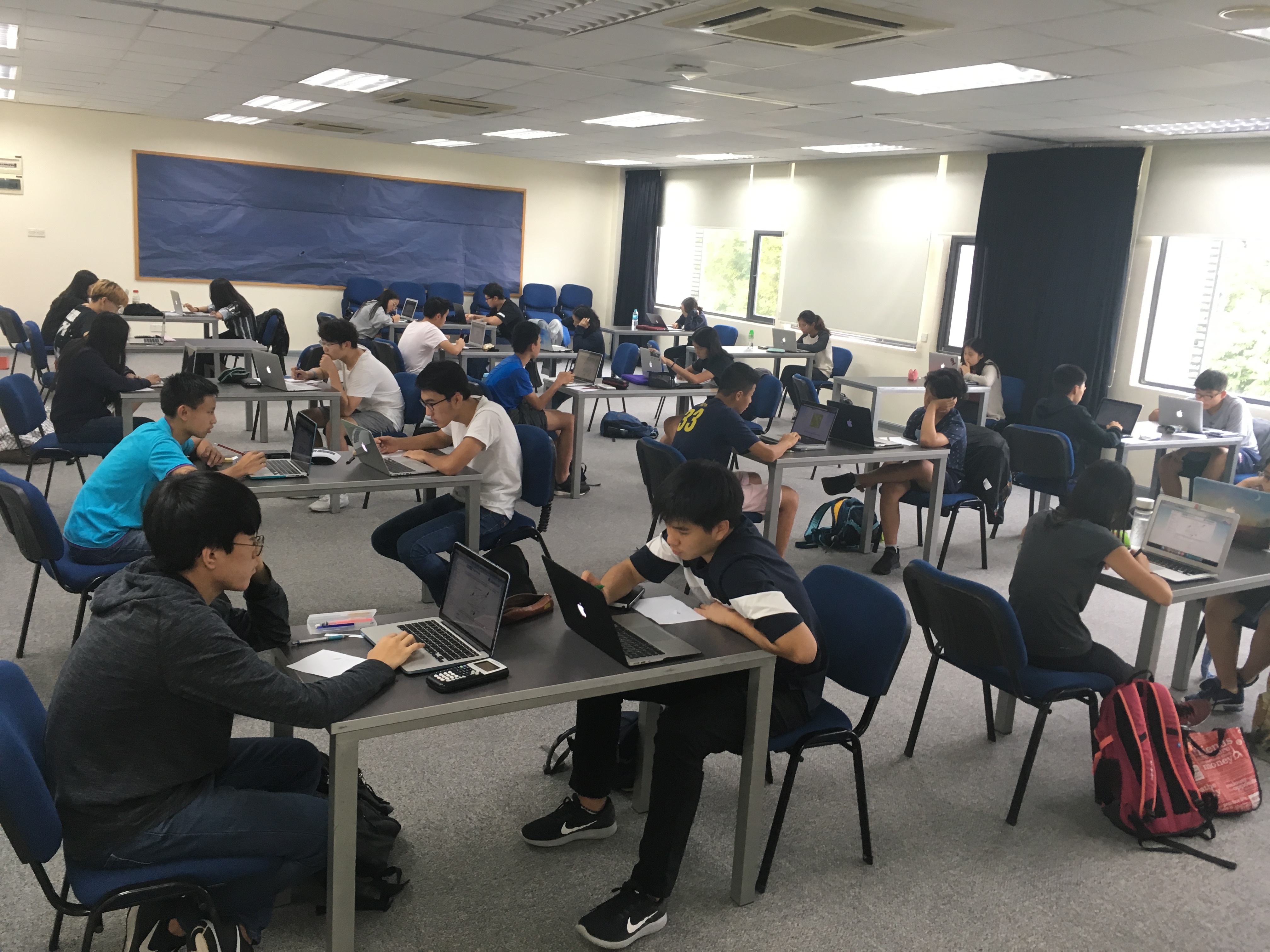
In the 2017-2018 school year, there have been 5 math contests held at AISG for high school students, including many from The University of Waterloo: Pascal and Fryer (9), Cayley and Galois (10), Fermat and Hypatia (11), Euclid (12), and Beaver, the American Math Competition (AMC), and The Purple Comet Team Contest.
The University of Waterloo holds many math competitions targeted at different grade levels based on the Canadian system for high school students. According to Ms. Francis, students considering applying to university in Canada should do it.
Here’s a short overview of each test:
- The Pascal, Cayley, and Fermat tests are multiple choice tests which take 45 minutes.
- The Fryer, Galois, Hypatia and Euclid tests are short and long answer tests which only have 4 questions and take 75 minutes.
- The AMC or American Math Competition is also a multiple choice test which lasts 75 minutes; it typically tends to be the hardest.
- The Beaver Contest is only for grades 9 and 10, and more of a computing, coding and logic test. Click here to read Anna K’s article about it.
- The Purple Comet Contest is a team contest for up to 6 group members which has 30 questions and takes 90 minutes.
In my experience, you see the same people at every math contest with many students doing most or all of the contests provided by the school. Gabriel K is one such example; this year, he did 4 out of these 5 math competitions – he didn’t do the Beaver Contest. When asked about his opinions on each of the contests, he commented “I liked the Waterloo (Cayley) test because it was multiple choice and the questions were relatively easier than AMC and other tests I’ve taken. [However], the AMC is the most renown or famous contest that is recognized by the world usually, even if it is also the hardest one.” He claims that for the second Waterloo test he took (Galois), “[he] failed it, [and] thought that it measured your ability to go deep into one question, [and that it] takes longer to do each question.” Lastly, he stated that “[the] Purple Comet contest is really fun because you make a team with your friends and participate together, […] instead of solving it by yourself. [It also gives you the opportunity to] talk about it with other people, [and it’s] comforting to check your answers with each other before submitting.” Many other students also agree with this last claim.

Cathy Z, Cindy W, and Lisa M, other committed math contest takers, also agree that the Purple Comet is good because “its fun to work as a team; we can collaborate and solve the problems together when in other math contests we have to work alone.” I completely agree with this as well; the Purple Comet is a unique math contest in that way as it is truly fun in a way some others are not.
Nevertheless, the question of why students do these contests is still relevant. When Gabriel was asked about this, he replied that he does them “because everyone else takes [them] and also, if you’re good at math, [he doesn’t] see the reason why you shouldn’t take it,” adding that “there’s no reason not to take them, especially since they’re free.” He states that “if [he] had to pay for each test, [he] wouldn’t do [them], but it’s free, so why not?” Gabriel simply believes that there isn’t any valid reason not to take them. The scores you get on these tests can only help you, as they are considered extra-curricular. Other students have a similar outlook as me too. For example, both Cathy and Miku acknowledge that taking these math contests, regardless of the final score, look good on college applications as an extra-curricular activity that you did. Getting a high score on one of these tests would only boost the positive impact.

Overall, if you are somewhat good at math, enjoy math or simply want to add something to your college applications, doing an extra math contest can be an excellent thing to d0. And, if nothing else, I would personally recommend doing the Purple Comet Contest because working with friends can lighten the situation and make the competition more fun.